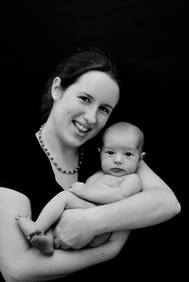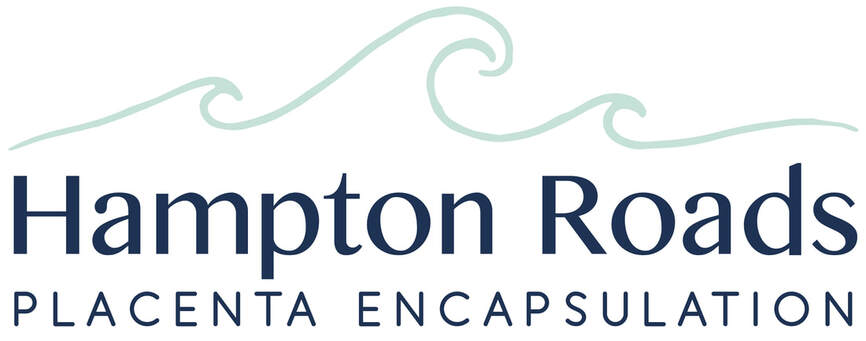|
The transition from pregnant to postpartum life can be a huge adjustment for many women. There are so many resources in Hampton Roads for you to find support. You do not have to navigate these waters alone.
Prenatal & Postpartum Support Groups Postpartum Support VA Portsmouth Portsmouth Naval Medical Center Military members and dependents 620 John Paul Jones Circle, Portsmouth Social Work Conf Room (Bldg 3, 4th floor) Every Thursday afternoon, 2 pm Kimberly Barnard-Bracey, (757) 953-5861 Virginia Beach Sentara Princess Anne Hospital 2025 Glenn Mitchell Drive, Virginia Beach 2nd floor FMC Classroom 2nd & 4th Tuesdays each month 6:30 – 8 pm [email protected] Norfolk Children’s Hospital of The King’s Daughters 601 Children’s Lane, Norfolk 4th floor, Neonatology Conf Room 1st Tues each month, 12:30 pm (NICU moms) 3rd Wed each month, 6 pm (all moms) (757) 668-7165 [email protected] Sentara Leigh Hospital 830 Kempsville Road, Norfolk Lafayette Conference Room, across from gift shop 1st & 3rd Tuesdays each month 6:30 – 8:00 pm [email protected] Birth matters Virginia Peninsula Monthly Events: Birth Circle is held on the last Tuesday of each month 6:45PM – 8:30PM Hidenwood Presbyterian Church 414 Hiden Blvd. Newport News, VA Tidewater Chapter Friday, November 27th, 6:30- 9 pm: Ohana Birthing Williamsburg Meets the third Thursday of each month from 6:30 PM – 8:30 PM at the downtown Williamsburg Regional Library located at 515 Scotland Street (map). Pregnancy and Postpartum Counseling Kriston Nixon, LPC Kriston specializes in perinatal mental health including struggles related to infertility, pregnancy, and postpartum. 757-344-3510 317 Office Square Lane Suite 202B Virginia Beach, VA 23462 kristonnixoncounseling.com Breastfeeding Support LLL of Hampton Roads Meetings are listed under the events tab on their FB page. www.facebook.com/LLLHamptonRoads/ Postpartum Doulas Tina the Postpartum Doula http://tinathedoula.com Naturopathic Providers Holistic Family Practice Dr. Erica Steele holisticfamilypractice.lpages.co/womens-health/
1 Comment
 One of the first questions that clients or their family ask me is "How did you get into this line of work?" It's a fair questions considering my line of work is certainly not something common or expected. So here is my story: When I was pregnant with my first child I wanted to do it all. I read blog after blog about various topics and placenta encapsulation was mentioned with glowing reviews time and time again. I asked my midwife for a recommendation and decided I would have my placenta encapsulated. I made the mistake of not contacting my specialist until 4 days after my baby was born. By that time I was stuck on the roller coaster of my own postpartum hormones and I desperately needed her services. She agreed to come over the next day and get to work. She arrived and walked in to find me newborn in arms and a freshly tear stained face. I was struggling and I was so eager to welcome her into my home. She brought her supplies into my kitchen and she got right to work. I don't remember much of anything about the process because what was most healing for me was her willingness to listen as I talked about my birth and my experience of my first few days of motherhood. I was starting to feel a bit better after releasing my emotions and knowing that my placenta was on it's way to working it's magic for me. My specialist returned the next day and finished up her work. I started my capsules that same day and within a few hours I felt the fog lift. Previously I had been emotional, weepy, and unable to find a good balance in my new role as a mother. The capsules helped me steady myself and things just felt normal again. I was still experiencing the normal postpartum transition but it was not nearly as sharp and steep of a drop as it had been before I introduced placenta capsules into my system. Beyond my mood I had zero issues with my milk supply despite the hinderance of a nipple shield those first 2 weeks. I stopped bleeding within a week & a half and discovered newfound bursts of energy where previously my fatigue had lingered. I credit those placenta capsules to a much easier postpartum experience. I was instantly made a believer. A year later I realized that had my midwife not recommended someone to me I would have struggled to find someone to provide this service for me. I decided that I wanted to share the benefits of this service with other women and I wanted to be easily accessible to the modern pregnant woman. So, that brings me to today, 2 years later, with nearly 150 clients under my belt and a sincere gratitude for this service that not only saved my postpartum experience but has given me a career and a business that I truly love and enjoy. "I'm skeptical of placenta encapsulation..."
I've heard it time and time again and I'm here to tell you- I understand! A little bit of skepticism is good! It keeps us thinking, keeps us searching for answers. My initial reaction was very similar until I experienced the benefits myself and until I started delving through the research and information available. Let me share a little bit of what I've learned with you... Don't animals consume their placenta to clean the nest site and keep away predators? Nearly all land mammals consume their placenta after the birth of their young (the noted exception are camels). Even primates who birth in trees out of their predators reach will consume their placentas rather than allow them to drop to the ground. Relatively unchallenged mothers will also consume their placenta. And lastly, "Mothers of non-nesting species eat the afterbirth and in fact, remain at the birth site long after the neonate is able to walk away in order to finish consuming the placenta." (Kristal,7) So while it would seem like a logical explanation it would seem through further examination that cleaning the nest site and detracting predators is not the reason for placentaophagia in mammals. Isn't that cannibalism? Simply put? No, your placenta belongs to you and eating it does not fit the definition of cannibalism. The placenta is a filter and filled with toxins! Your placenta is miraculous. It is part of an advanced filtering system that provides nutrients to the baby while filtering out waste and toxins to be disposed of by the mother's body. "The placenta basically functions like this: Mom's blood flows into the blood lake on her side of the placenta, which bathes the chorionic villi that are threaded through with fetal blood vessels. Small molecules and nutrients (like oxygen, glucose, vitamins, fatty acids, calcium, antibodies, and so on) flow from Mom to baby, and waste products (like carbon dioxide, urine, and metabolic wastes) flow from baby to mom." (Dr. Michael Roizen, MD, Source) There aren't any scientific studies to prove this works. There are some older studies done involving animals and placentophagia. There is also an older study on lactation and human placenta consumption. We absolutely do need more research into the subject but the absence of research does not equal an absence of benefits. There is currently a Placenta Vs. Placebo study taking place at UNLV. The results are eagerly anticipated by many. Animals eat their placenta because of hunger after labor. "While many spececies do show decreased food intake prior to parturition, the rat does not. Placentaophagia, however, is observed in nearly 100% of normal rat parturitions." (Kristal,9) Why should I consume my placenta? Your body has created the perfect postpartum supplement for you. Your placenta is readily available to you and I can help you bottle the benefits neatly into pill form. What benefits can I expect to see if I consume my placenta? You are never guaranteed benefits but what I can tell you is what previous clients of mine have experienced. Past clients have experienced a lessening of the baby blues and feelings of anxiety. They have noticed faster postpartum healing, balanced hormones, and healthy milk supplies. The experience is so customized that the only way to truly know what benefits you'll receive is to try it for yourself. Will the hospital let me take that home? Yes, your placenta belongs to you and you have every right to bring it home with you. What kind of women are choosing placenta encapsulation? Every kind of woman! I have worked with nearly every type of woman imaginable. Women who choose c-sections, women who are induced, women who birth in birth centers, women who birth at home. I have worked with stay at home moms, working moms, first time moms, and moms of many. I have worked with naturally minded women and mainstream women. Placenta encapsulation is appealing to everyone- every woman benefits from an easier postpartum. Is there any risk to consuming my placenta? Nothing is risk free. The most important thing you can do to lessen any potential risk is to choose a provider who is educated, and dedicated to providing you the safest experience possible. There are no official requirements to provide placenta encapsulation so look for someone who is trained and/or certified, someone who partakes in continuing education. Do not be afraid to ask questions! Website Title: Sharecare Article Title: How does the placenta function? - Placenta & Fetal Development Date Accessed: September 28, 2015
Local Hospital Placenta Release Policies Hampton Roads Placenta Encapsulation  Different hospitals can have very different policies regarding placenta release. Even if a hospital has a policy in place occasionally you may run into a nurse or doctor who is not familiar with patients taking their placentas home. It is important that you educate yourself on your hospital's policy so you can arrive prepared. No one wants to play placenta protector immediately after giving birth! HRplacenta requires the following of all clients:
Below you will find the placenta release policies of all our local hospitals. These are requirements that I was given when I called into each hospital L&D. If you have any questions regarding the policies please talk with your care provider. |
AuthorHillary Westbrook is a Certified Placenta Encapsulation Specialist Archives
April 2019
Categories |


 RSS Feed
RSS Feed
